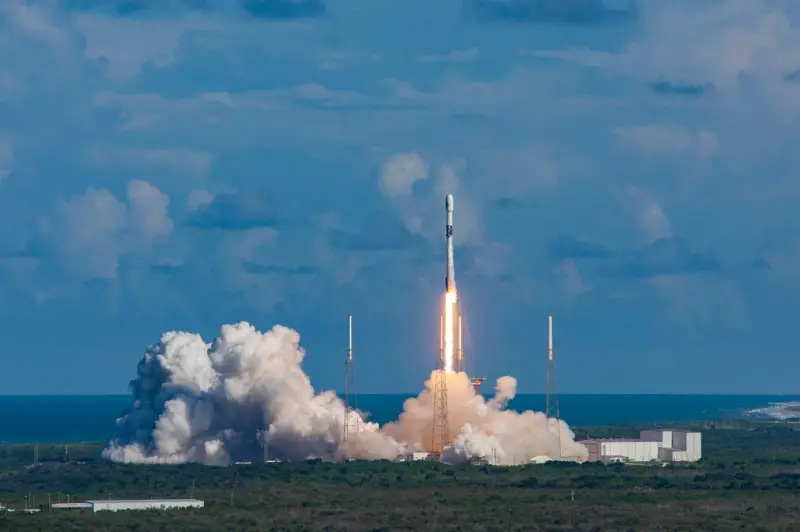On Monday, July 20, SpaceX launched a South Korea’s first military communications satellite, ANASIS-II. Liftoff of the Falcon 9 Block 5 rocket occurred at 5:30 PM EDT (21:30 UTC), half an hour into the launch window, after a short weather delay. Army/Navy/Air Force Satellite Information System 2 (ANASIS-II), previously named KMilSatCom-1, is a secure communications satellite for the South Korean Agency for Defense Development. The launch took place from SLC-40 at the Cape Canaveral Air Force Station in Florida. South Korea’s Defense Acquisition Program Administration (DAPA) said, making the country the world’s 10th to own a communications satellite for military purposes only.
(DAPA) contracted with Lockheed Martin for the satellite, as part of a package for Lockheed Martin’s 40 F-35A fighter jets. Lockheed Martin then subcontracted the construction of the satellite to Airbus Defence and Space. The satellite was shipped from the Airbus satellite factory in Toulouse, France to Cape Canaveral on June 8th. The ANASIS-II spacecraft is based on Airbus’s Eurostar E3000 satellite bus, over 80 of which have been ordered for various communications missions. While the mass of ANASIS-II is classified due to its military mission, other E3000 satellites range from 4500 to 6500 kilograms at launch.

DAPA earlier said the satellite was forecast to separate from the rocket 32 minutes after launch at an altitude of about 630 kilometers above the equator and would try to send its first signal to the ground 18 minutes later. In two weeks, the satellite is expected to reach its orbit of 36,000 km. The South Korean military will take over the system in October after manufacturer Airbus Defense and Space tests its functions and operability, according to DAPA. Anasis-II was originally scheduled to launch in early July, but the blastoff was pushed back due to a hardware inspection, SpaceX said earlier.
When the ANASIS-II mission lifted off, the B1058 booster broke multiple turnaround records. SpaceX’s booster turnaround record was previously held by B1056, which launched the 5th Starlink mission just 62 days, 14 hours, and 55 minutes after launching the JCSat-18/Kacific-1 mission. The time between Demo-2 and ANASIS-II was just 51 days, 2 hours, and 8 minutes. This also broke the overall turnaround record for an orbital rocket, previously held by Space Shuttle Atlantis. Atlantis launched on her first two missions, STS-51-J and STS-61-B, within just 54 days, 9 hours, and 14 minutes.
















